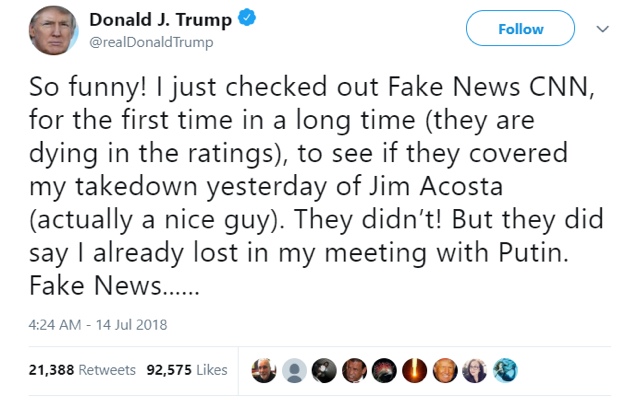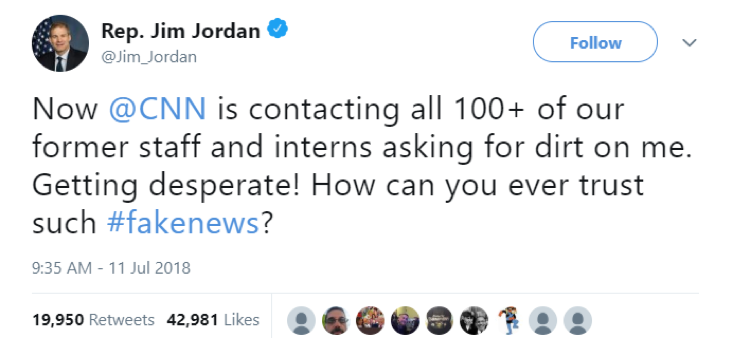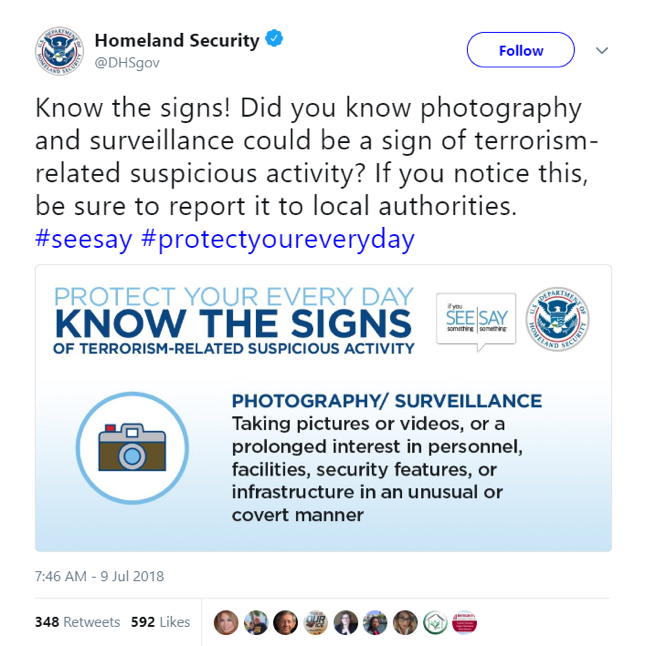US — #WeeklyAddress July 10 - July 17: Federal Judge censors Los Angeles Times
Below are the most notable incidents regarding threats to press freedom in the US during the week of July 10 - July 17:
Federal Judge censors Los Angeles Times
On July 14, U.S. District Judge John F. Walter ordered the revision of an article published that same day in the Los Angeles Times about Glendale, California police officer John Saro Balian and his connections with the Mexican mafia. Though the court case against Balian was meant to be sealed, it was accidentally published on PACER, a public online federal court documents database. Judge Walter did not go into detail regarding the legal justification for censoring the article. “We believe that once material is in the public record, it is proper and appropriate to publish it if it is newsworthy,” said Norman Pearlstine, executive editor of the LA Times. The paper plans to fight the court order. To learn more about this incident, read RSF’s publication: ALERT: US - RSF concerned by federal court’s censorship of the Los Angeles Times.
Massachusetts newspaper receives violent threat
The Walpole Times, a print newspaper in Walpole, Massachusetts, said it had to temporarily shut down their office and increase security following a threat from a former journalist Amy Zuckerman. According to the Walpole police chief, Zuckerman threatened one of the paper’s reporters over email, including “shooting a firearm through the window of The Walpole Times while people were there.” Zuckerman, who was a journalist for over 40 years, reportedly has had a history of mental illness. She did not work for The Walpole Times. The Times received these threats just weeks after the targeted shooting at the Capital Gazette newspaper in Annapolis, Maryland on July 28 that left 5 dead, including 4 journalists.
Chicago reporter shoved to the ground by police while covering protest
In a July 14 tweet, Chicago Sun Times reporter Nader Issa tweeted that he got shoved to the ground by two Chicago police officers who smacked his phone out of his hand while he covered protests surrounding the Saturday shooting of local barber Harith Augustus. Issa says he was wearing his press badge and identified himself as a reporter which didn’t stop the officers who “rushed the parking lot and started hitting people” according to the tweet. Issa later released the video of his encounter with officers. The conduct by the Chicago police department has angered many, with one journalist stating “Police in Chicago killed a barber. Then rushed the killer off the scene. Then charged protesters. Then tried to set dogs on them. All the while brutalizing journalists documenting the event. Tell me where policing isn't broken.”
Journalist harassed by ‘Roe v. Wade’ movie crew member while filming On the morning of July 12, journalist for The Daily Beast, Will Sommer, was harassed outside the Lincoln Memorial in Washington DC during the filming of an upcoming movie entitled ‘Roe v. Wade’. According to Sommer’s account of the situation, “a man later identified by police as a member of the crew came over to where I was sitting in a public space with a group of tourists and grabbed my notepad out of my hand by force.” The man then ripped up pages of the notebook and refused to give the journalist’s property back. After Sommer called the Park Police, the man gave the notebook back but “the officer declined to stop the man, reveal his name, file an incident report, or talk to other members of the crew, insisting that the problem had already been solved” said Sommer. Read more about this incident on the US Press Freedom Tracker.
Trump continues ‘fake news’ campaign, again refers to press as “enemy of the people” In a July 13 joint press conference with Theresa May, President Trump refused to take any questions from CNN Chief White House Correspondent Jim Acosta. When Acosta asked if he could ask a question, Trump responded by calling on a Fox News reporter instead: “John Roberts, go ahead. CNN’s fake news. I don’t take questions from CNN.” The president then took to twitter the next day to further criticize the publication, stating:

Then as Trump headed to Helsinki, Finland to meet with Russian leader Vladimir Putin, he again referred to the US news media as the “enemy of the people.”
Congressman calls CNN “fake news” for covering controversial past Representative for Ohio’s 4th congressional district Jim Jordan accused CNN of being “fake” news in the wake of investigative reporting done by the news outlet in response to an ongoing controversy involving Jordan’s tenure as assistant wrestling coach at Ohio State University.

Jordan has received extensive backlash for his comment, with one woman tweeting “If CNN were fake news, as you suggest, why would they bother contacting all 100+ of your former staff and interns? Wouldn’t they just make up a fake story? You are fake news.”
‘Photography could be a sign of terrorism’ warns the Department of Homeland Security
In a July 9 tweet, the Department of Homeland Security (DHS) tweeted an image urging people to speak up against “suspicious” photography and surveillance near their facilities, claiming the activities could be terrorism-related.

The DHS describes suspicious photography as snapping images of “personnel, facilities, security features, or infrastructure,” This isn’t the first time the DHS has taken action that seems to be at odds with the freedom of the press; in April it was revealed that the DHS was compiling a database of journalists and media influencers.
Huffington Post journalist denied entry to US Capitol
Huffington Post journalist Matt Fuller was denied entry into the US Capitol despite having a temporary press pass. According to Fuller, the officer “then decided to be incredibly rude and is now reporting me because I told him I’d be reporting him.” This isn’t the first case of access restrictions for journalists covering the Capitol. Last year reporters were informed that Capitol reporters were not allowed to film interviews with senators in hallways anymore, instead requiring the journalist to seek permission from both the senators in question and the Senate Rules Committee’s chief counsel.
Jury to hear case of citizen journalist unlawfully arrested in Texas
On July 9, a Dallas federal judge ruled there was enough evidence to allow a jury to decide whether an officer violated citizen journalist Avi Adelman’s First Amendment rights when he was arrested in 2016 in Dallas, Texas. Dallas Area Rapid Transit (DART) officer Stephanie Branch detained Adelman for filming a man receiving medical treatment on DART property, and Adelman was charged with criminal trespassing. Although the charge was dropped a week later, Adelman filed a lawsuit against the officer in September 2016 for violating his 1st and 4th amendment rights. Just last week journalist Susan Greene, a reporter from the Colorado Independent was detained for taking photos of a police stop. According to the US Press Freedom Tracker, 3 journalists have been arrested in the United States in 2018 so far.
The United States ranks 45th out of 180 countries in RSF's 2018 World Press Freedom Index after falling 2 places in the last year.
For the latest updates, follow RSF on twitter @RSF_en.



